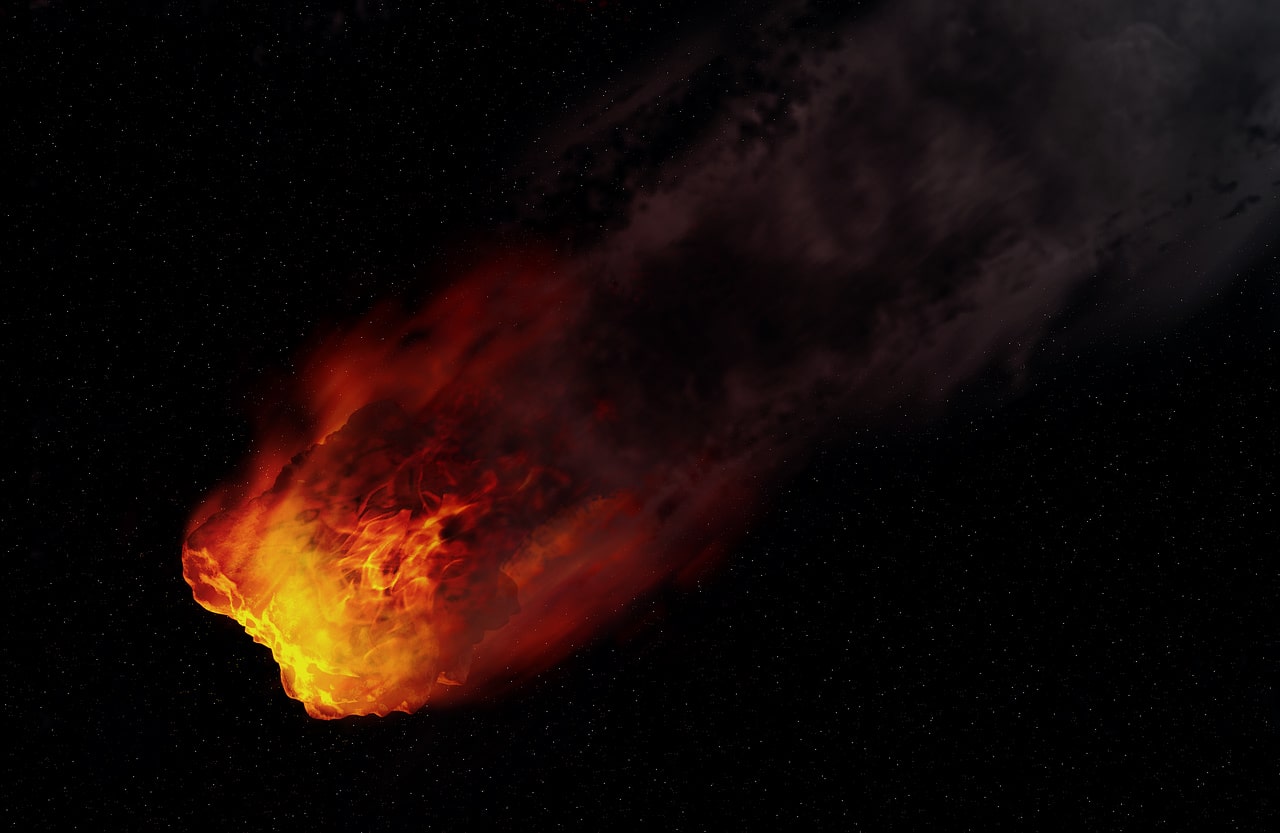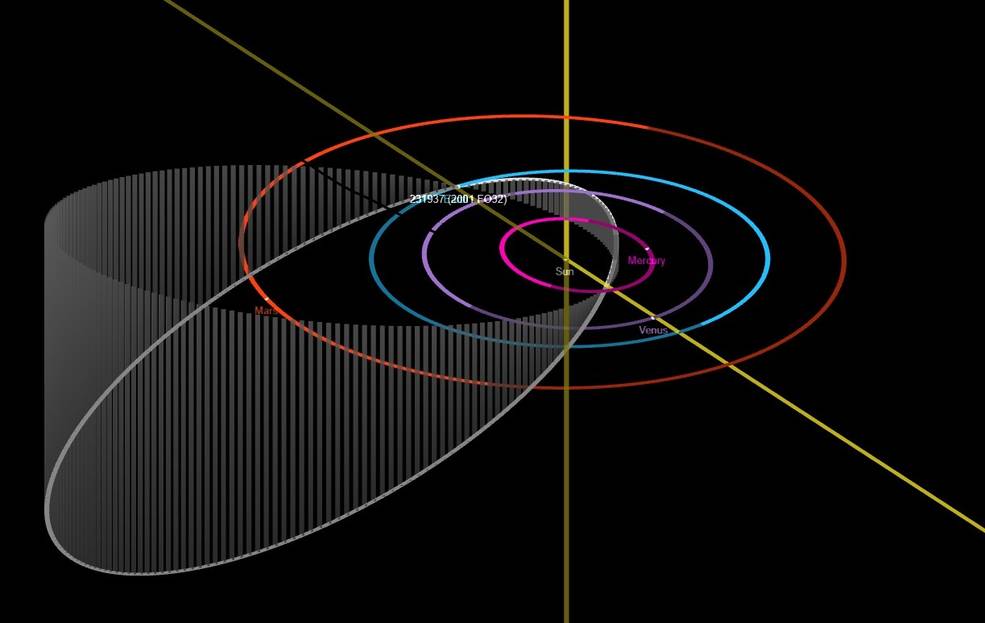
The largest asteroid named 2001 FO32, approximately 1,300 and 2,230 feet wide, will make its closest on March 21, 2021. Its close approach offers astronomers a rare opportunity to get a good look at a rocky relic that formed at the dawn of our solar system.
The asteroid’s closest approach will occur at 12:03 p.m. ET Sunday.
The asteroid will make flyby at a distance of about 1.25 million miles (2 million kilometers) – or 5 1/4 times the distance from Earth to the Moon. There is no threat of a collision with our planet now or for centuries to come. It will also be moving much faster than other asteroids at about 77,000 mph (124,000 kph) during the approach.
Paul Chodas, director of the Center for Near-Earth Object Studies (CNEOS), said, “We know the orbital path of 2001 FO32 around the Sun very accurately since it was discovered 20 years ago and has been tracked ever since. There is no chance the asteroid will get any closer to Earth than 1.25 million miles.”
Although the asteroid won’t get too close to Earth, still it’s dubbed as a potentially hazardous asteroid because of its close distance.

The 2001 FO32 has a highly inclined and elongated (or eccentric) orbit around the Sun. Its orbit is tilted 39 degrees to Earth’s orbital plane. That’s the reason behind its unusually speedy close approach. Its orbit makes the asteroid closer to the Sun than Mercury and twice as far from the Sun as Mars.
As 2001 FO32 makes its inner solar system journey, the asteroid picks up speed like a skateboarder rolling down a halfpipe and then slows after being flung back out into deep space and swinging back toward the Sun. It completes one orbit every 810 days (about 2 1/4 years).
After its brief visit, 2001 FO32 will continue its lonely voyage, not coming this close to Earth again until 2052, when it will pass by at about seven lunar distances, or 1.75 million miles (2.8 million kilometers).
Observations made by NEOWISE suggest that the asteroid appears faint in infrared wavelengths. It means the object is likely less than 1 kilometer in diameter. The observations also show that the 2001 FO32 is between 1,300 to 2,230 feet (440 to 680 meters) wide.
Vishnu Reddy, associate professor at the University of Arizona’s Lunar and Planetary Laboratory in Tucson, said, “We’re trying to do geology with a telescope.”
“When sunlight hits an asteroid’s surface, minerals in the rock absorb some wavelengths while reflecting others. By studying the spectrum of light reflecting off the surface, we can measure the chemical “fingerprints” of the minerals on the asteroid’s surface. “We’re going to use the IRTF to get the infrared spectrum to see its chemical makeup.”
“Once we know that, we can make comparisons with meteorites on Earth to find out what minerals 2001 FO32 contains.”
Also, the Deep Space Network (DSN) radar observations may be carried out to get a detailed view of the asteroid. Such radar observations can offer additional insight into the asteroid’s orbit, provide a better estimate of its dimensions and rotation rate, and help glimpse surface features (like large boulders or craters). They could even reveal any small satellites that may be in tow.
Continue reading The largest asteroid to make a close approach of Earth today on Tech Explorist.
0 comments:
Post a Comment